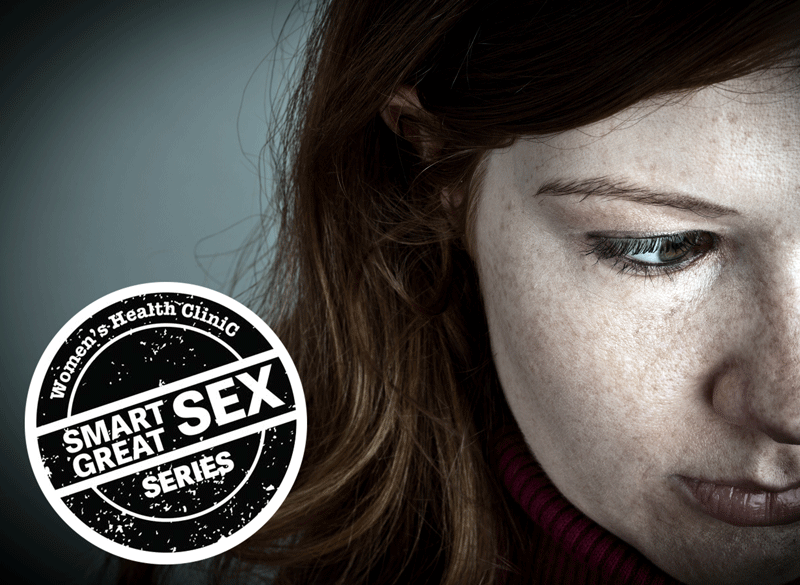Smart Sex/Great Sex Series: After a Sexual Assault
By deb kozak Trigger warning: Blog discusses sexual assault. If you are triggered by anything you read here, please call the Klinic Crisis line at 204-786-8686 (in Winnipeg) or toll-free 1-888-322-3018 (outside Winnipeg). Trained helpers are available 24 hours a day to give confidential support and helpful information. In our last blog, we talked about how important communication and clear consent is in sexual encounters. Ideally, each of us would always be consenting every time we have sex, the whole time we are having sex. Unfortunately, that’s not always the case. At some point in our lives, in spite of our best planning and preparation, we may find ourselves in a situation where sex has happened in a way or at a time we didn’t want it to. Even

By deb kozak
Trigger warning: Blog discusses sexual assault. If you are triggered by anything you read here, please call the Klinic Crisis line at 204-786-8686 (in Winnipeg) or toll-free 1-888-322-3018 (outside Winnipeg). Trained helpers are available 24 hours a day to give confidential support and helpful information.
In our last blog, we talked about how important communication and clear consent is in sexual encounters. Ideally, each of us would always be consenting every time we have sex, the whole time we are having sex. Unfortunately, that’s not always the case.
At some point in our lives, in spite of our best planning and preparation, we may find ourselves in a situation where sex has happened in a way or at a time we didn’t want it to. Even if an unwanted sexual encounter doesn’t involve force or violence, it is still sexual assault. Sometimes it’s really clear to us that a sexual assault has occurred. However, messages in pop culture about “blurred lines” and “shades of grey” and many other myths about who is responsible for when and how sex happens, can make things confusing. We may not be quite sure what happened or what to do next.
Whatever happened, however it happened, if you had unwanted sex, know it wasn’t your fault. The victim is NEVER responsible for being assaulted. Whether it’s clear you’ve been sexually assaulted or if you suspect it, there are some practical things you can do for yourself.
The most important thing is get to a safe place as soon as possible. Call 911 for help if you need to. Your immediate safety is what matters most.
Get medical care as soon as possible, even if you think you’re not physically hurt or don’t want anyone to know what happened. To protect ourselves in times of trauma, it’s normal for our minds to want to shut down – to block out what happened, to not think about it or be reminded of it. A sexual assault isn’t easy to face, but taking care of yourself is necessary.
If you would like someone to go with you to the hospital, you can call Klinic’s Sexual Assault Crisis line at 204-786-8631 (toll free 1-888-292-756). A trained volunteer can meet you and be with you during the exam for support.
A medical exam at this time may be physically or emotionally painful – you’ll be asked questions about the assault and have photos taken of any physical injuries. As difficult as this may be, it’s important to get any injuries treated, and to be tested for sexually transmitted infections (including HIV/AIDS), and pregnancy. Health care providers can also give you medications that can help you heal and reduce any further risks to your health. Even if you haven’t decided to report the crime, having a medical exam and gathering any physical evidence is important.
A common first reaction to being sexually violated is to want to clean up and get rid of any reminders of the incident, like clothes or bedding. Even if you think you don’t want to or aren’t ready to involve the police, it’s a good idea to try to NOT:
- bathe or shower
- use the restroom
- change or destroy clothes
- comb hair
- clean up the area where the assault happened
- move or destroy anything the offender may have touched
Reporting a sexual assault is your decision. Some well-intentioned people might pressure you into involving the police, thinking that it will help you – and any other possible future victims – to do so. Only a small percentage of sexual assaults are reported in Canada. There are many reasons why victims may not report the assault. They may be in relationship with the person. They may not be sure if what happened is really a sexual assault. They may blame themselves for the choices they made before the assault happened. They may be worried about what other people will think of them if they knew what happened.
Again, whatever the circumstance, sexual assault is NEVER the victim’s fault. It is completely up to you whether you want to report the assault. No matter what anyone else says, it is not your responsibility to make sure the offender is punished. There is no statute of limitations for sexual assault in Canada. This means there is no time limit for when you can report the assault. Gathering evidence at the time of the assault may help if you decide to report it at another time.
Recovering physically and emotionally from an assault takes time. Give yourself the time you need and know that, whatever decisions you make right now, it is never too late to get help. It’s important to remember that while sexual assault is a traumatic experience, it does not define you. You have survived, and with time and support, you can recover.
The support of people close to you can help but be aware they may not react to your experience in ways that you want or need. As they try to understand what happened, they may ask unhelpful questions about your decisions during and after the assault: “Why did you ____?” or “Why didn’t you _____?” Others may offer you their full support without judgment or blame. Who and how you decide to tell is up to you.
You do not have to share your experience with anyone until you are ready. Feeling in control of your recovery can be an important step in regaining control of your life. When you are ready, there are places you can go to for support.
If you have been sexually assaulted, Klinic offers:
- Sexual Assault Crisis Line (24 hours): 204.786.8631 (in Winnipeg), 1.888.292.7565 (toll-free outside Winnipeg), or 204.784.4097 (TTY)
- Sexual Assault counseling appointments: 204.784.4049
SOURCE: Women’s Health Clinic – Read entire story here.









